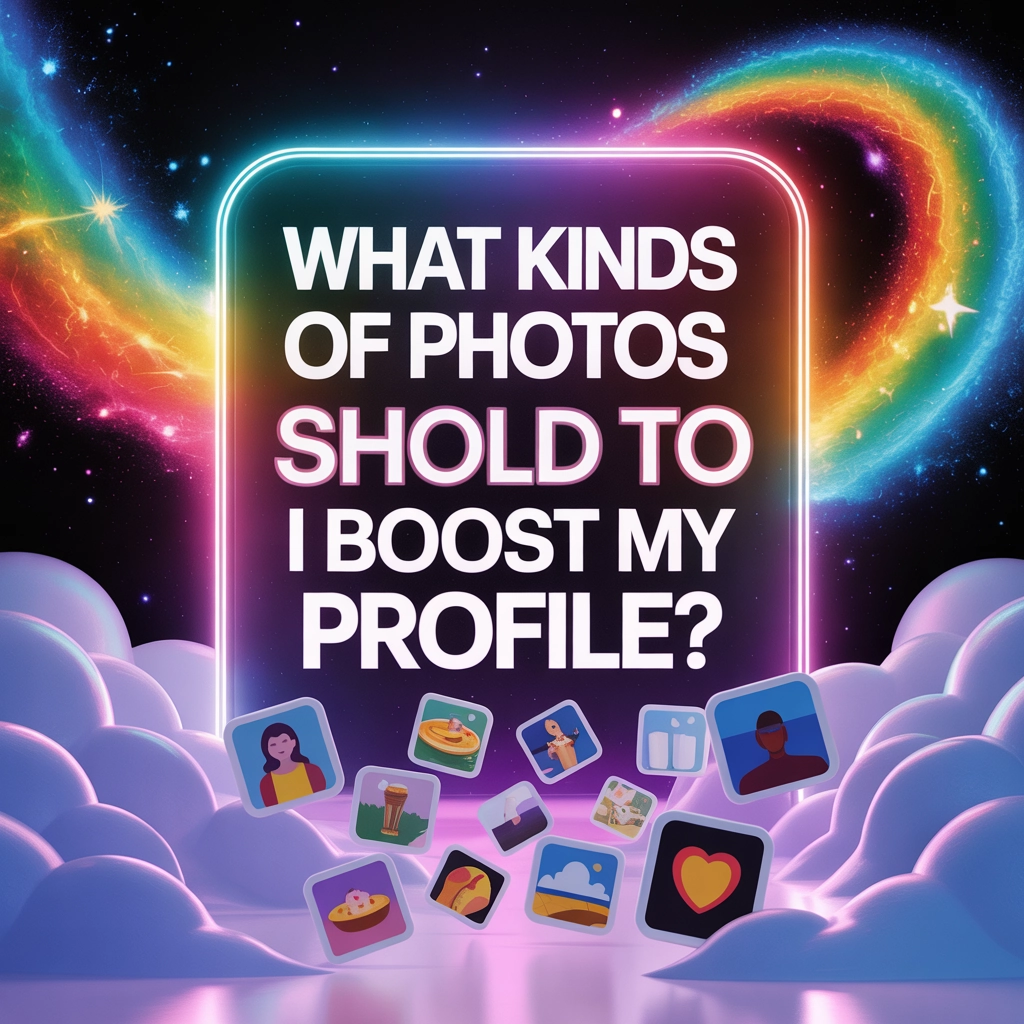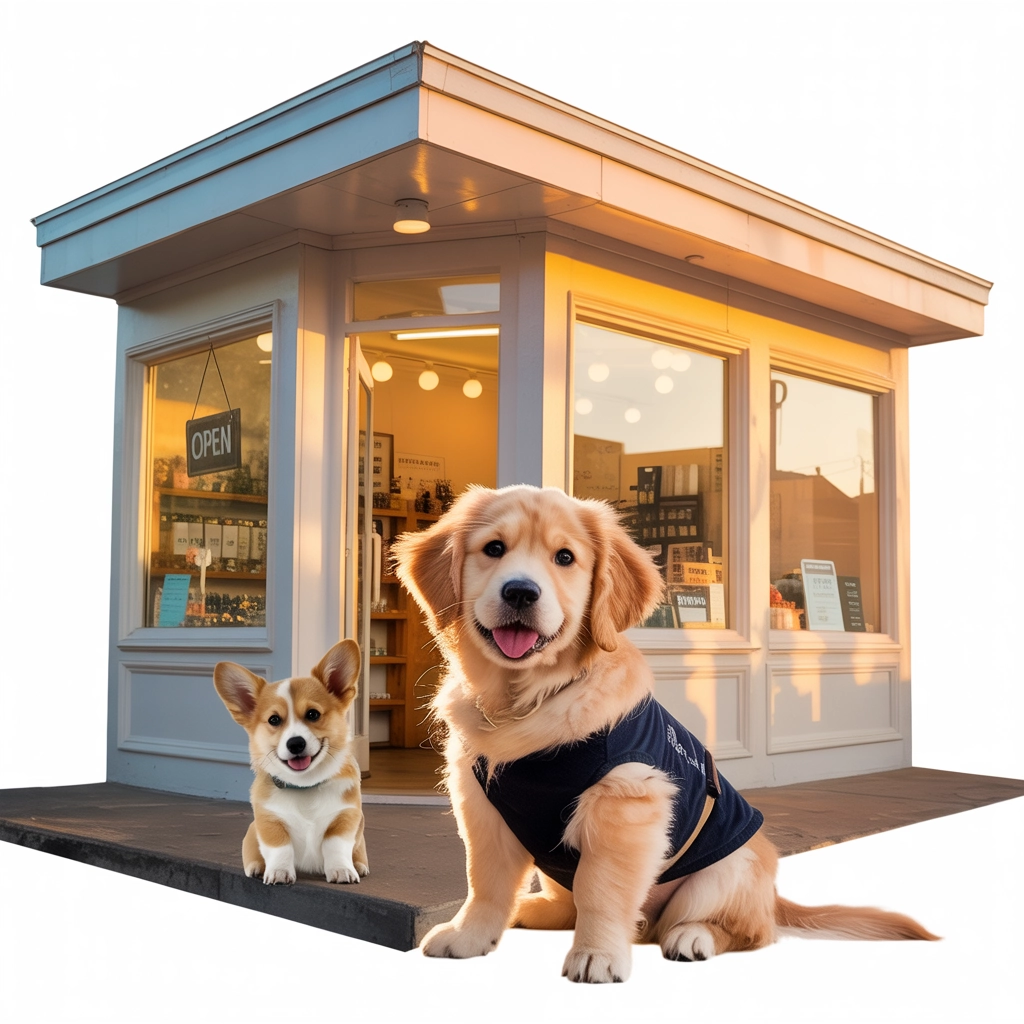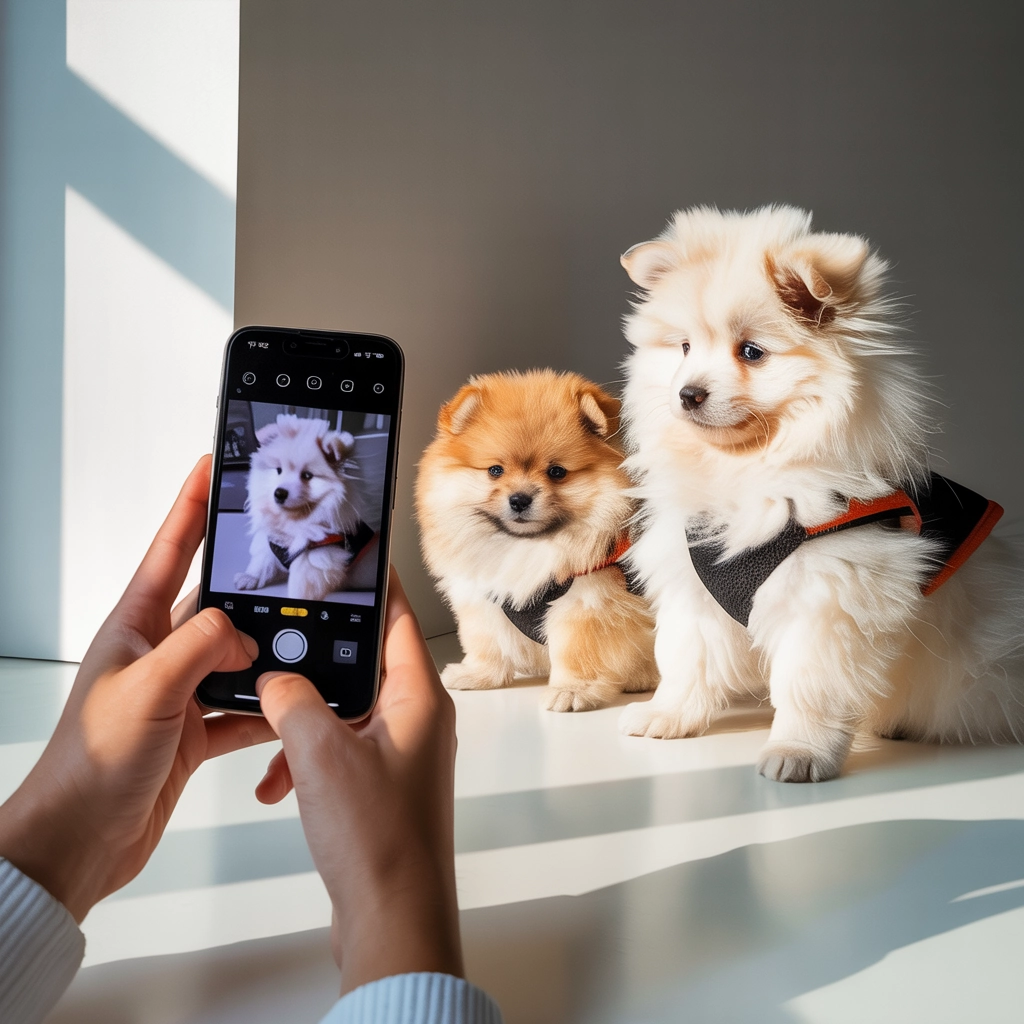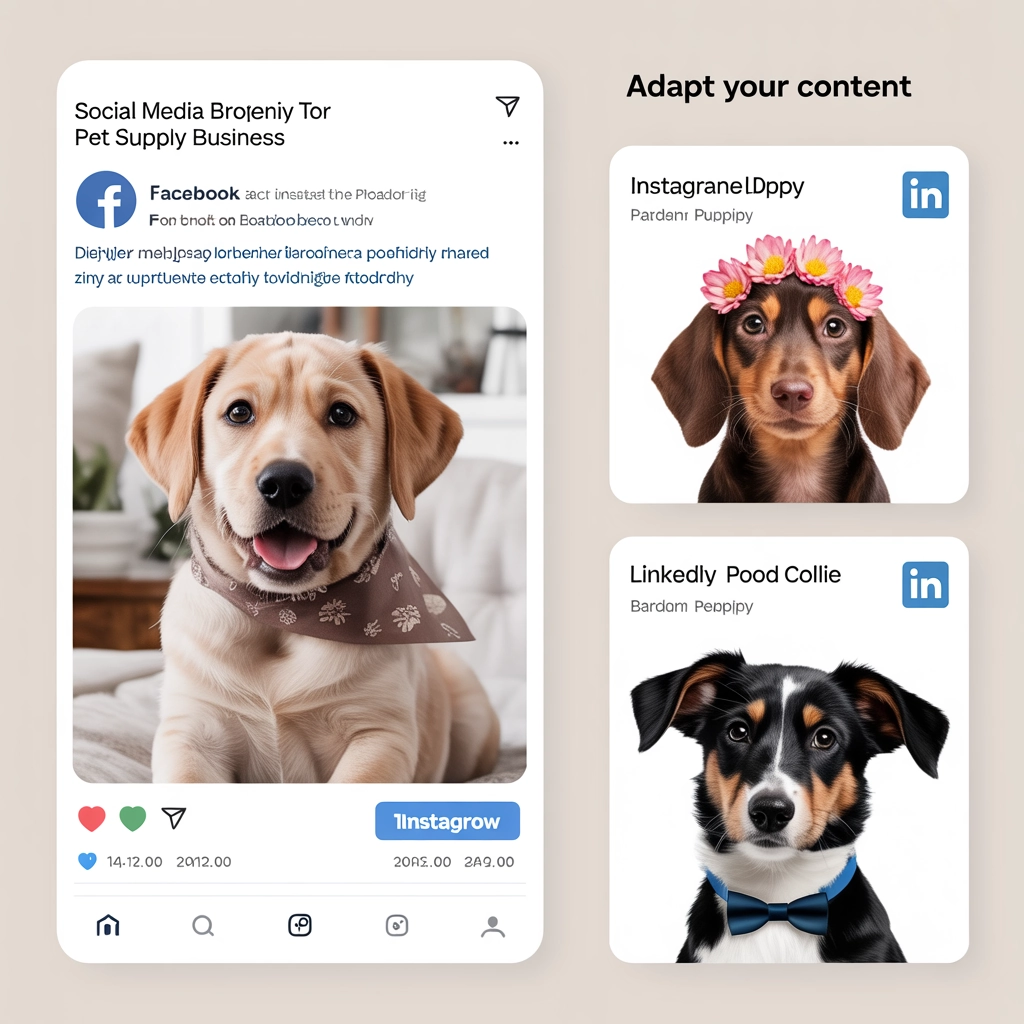What Kinds of Photos Should I Upload to Boost My Profile?
Learn which photos to upload to your business profiles to drive real results, including the essential photo types and technical tips for maximum impact.

 🐾
🐾What Kinds of Photos Should I Upload to Boost My Profile?

Ever notice how some business profiles just pop while others fade into the background? The difference often comes down to one thing: photos.
For small business owners, having the right images on your Google Business Profile, social media accounts, and website isn't just about looking pretty—it's about driving real results. Studies show businesses with quality photos get 42% more requests for directions and 35% more clicks to their websites than those without.
But what exactly makes a "good" business photo? Let's break down exactly which photos you need and how to make them work hard for your business.
The Essential Photo Types Every Business Profile Needs
Before diving into technical details, let's cover the specific types of photos you should have in your arsenal. Each serves a different purpose in building customer trust and showcasing your business.
1. Professional Headshots (The Face of Your Business)
Whether you're a solo entrepreneur or have a team, quality headshots are non-negotiable. These photos:
- Create an immediate personal connection with potential customers
- Show there are real humans behind your business
- Build trust before someone ever walks through your door
Pro Tip: For headshots, the focus should be on faces—not fancy backgrounds. Position yourself so your face takes up about 60% of the frame.
2. Team Photos (The Heart of Your Operation)
Team photos humanize your business and showcase your company culture:
- Include both formal team photos and candid working shots
- Show team members in branded attire when appropriate
- Capture genuine interactions rather than stiff poses
Real-World Example: A local bakery that posted casual Friday team photos saw a 27% increase in engagement on their posts compared to product-only content.
3. Interior/Exterior Establishment Shots (The Physical Experience)
These photos help customers visualize visiting your location:
- Capture your storefront during good weather and optimal lighting
- Show the interior from a customer's perspective
- Highlight unique design elements or seating areas
- Include photos both with and without customers (with permission)
Important: Take exterior photos at different times of day so customers know what to expect when they arrive.

4. Product/Service in Action (The Value You Provide)
Generic product photos aren't enough. Show your offerings being used or enjoyed:
- For products: Show them being held, worn, or used in real contexts
- For services: Capture the process and the end results
- Include before/after photos when relevant (especially for transformation services)
Conversion Booster: Products shown in use convert up to 22% better than those displayed in isolation.
5. Behind-the-Scenes Content (The Authentic Story)
These photos build authentic connections by showing what happens behind the curtain:
- Preparation processes
- Work in progress
- Team problem-solving moments
- Special events or celebrations
Engagement Fact: Behind-the-scenes content typically gets 87% more shares than standard promotional content.
Technical Elements That Make Photos Stand Out
Now that you know what types of photos to take, let's focus on making them look professional—even if you're just using a smartphone.
Lighting: The Make-or-Break Factor
Good lighting is the single most important element of great photos:
- Natural light is your friend: Position subjects near windows but avoid direct sunlight
- Avoid harsh overhead lighting: It creates unflattering shadows
- For outdoor shots: The "golden hour" (1 hour after sunrise or before sunset) provides the most flattering light
- Indoor shots: Turn off fluorescent lights when possible and use lamps for warmer tones
Quick Fix: If lighting is poor, moving just 5-10 feet closer to a window can dramatically improve your photo quality.
Composition: Framing That Commands Attention
How you frame your subject matters tremendously:
- Rule of thirds: Position key elements at the intersection points of a 3×3 grid
- Leading lines: Use natural lines (shelves, pathways, walls) to draw the eye to your subject
- Breathing room: Leave some space around your main subject
- Consistent height: Take photos from consistent angles for a cohesive look across your profile
Simple Trick: For product photos, use the portrait mode on your smartphone to create professional-looking depth of field (blurry background, sharp subject).

Resolution and Dimensions: Size Matters
Each platform has different image requirements:
| Platform | Ideal Dimensions | Max File Size |
|---|---|---|
| Google Business | 1024 × 768 pixels | 5MB |
| Facebook Cover | 851 × 315 pixels | 100KB |
| Instagram Post | 1080 × 1080 pixels | 30MB |
| LinkedIn Profile | 400 × 400 pixels | 8MB |
Universal Rule: Always upload the highest quality images you can—platforms will compress them anyway, so starting with higher quality gives you better results.
Authenticity vs. Polish: Finding the Balance
While professional quality matters, authenticity connects:
- Minimal editing: Enhance lighting and color, but avoid heavy filters
- Real people: Use actual team members, not stock photos
- Genuine moments: Capture natural smiles and interactions
- Consistent style: Develop a visual identity with similar tones across images
Trust Builder: Studies show "authentic" photos build 32% more trust than heavily staged or filtered images.
Platform-Specific Photo Recommendations
Different platforms have different photo needs and audience expectations.
Google Business Profile
Your Google profile directly impacts local search visibility:
- Cover photo: Choose a wide exterior shot or team image (minimum 750 × 750 pixels)
- Logo: Use a high-contrast version of your logo on a simple background
- Photo quantity: Businesses with 100+ photos get 520% more calls than the average
- Refresh rate: Add new photos at least monthly to show activity
Local SEO Boost: Google rewards active profiles with fresh photos by improving your visibility in local search results.
Social Media Profiles
Each platform has its own visual language:
- Facebook: Cover photos should showcase your physical location or team; profile pictures should be your logo
- Instagram: Mix polished product photos with candid behind-the-scenes content
- LinkedIn: More formal headshots and team photos; minimize casual content
- Twitter: Header images with less text perform better (text gets cropped on mobile)
Platform Tip: Create a content calendar that includes which types of photos to share on which platforms, ensuring consistency without repetition.

Website and Directory Listings
For your owned media and business directories:
- Homepage: Feature high-impact, emotionally resonant images above the fold
- About page: Include authentic team photos to build connection
- Service/product pages: Show detailed, well-lit images from multiple angles
- Testimonial sections: Include customer photos alongside reviews when possible
Conversion Note: Websites with custom photography have conversion rates up to 35% higher than those using stock photos.
Testing and Optimizing Your Photos
Don't just guess which photos work—measure their impact:
A/B Testing Your Images
Try different photos to see which perform better:
- Test different profile pictures for click-through rates
- Compare engagement on posts with different types of images
- Analyze which product photos lead to more inquiries
Implementation Idea: Create two similar posts with different images and compare engagement metrics after 48 hours.
Using Tools to Evaluate Impact
Several tools can help you understand photo performance:
- Google Business Insights: See which photos get the most views
- Social media analytics: Track engagement by image type
- PhotoFeeler: Get feedback on profile photos ($20 for 100 votes on likability/competence)
- Heat mapping tools: See where visitors focus their attention on your website images
Data Point: Businesses that regularly analyze and adjust their visual content see 41% higher engagement rates than those that don't.
Common Photo Mistakes to Avoid
Learn from others' errors to improve your own visual strategy:
Technical Errors
- Poor resolution: Blurry or pixelated images scream "unprofessional"
- Inconsistent sizing: Differently sized photos create a disjointed profile
- Overediting: Heavy filters make your business look inauthentic
- Poor cropping: Cutting off important elements undermines your message
Strategic Mistakes
- Stock photo overload: Generic images fail to differentiate your business
- Outdated content: Photos showing old branding or closed locations confuse customers
- Too product-focused: Only showing products without people creates emotional distance
- Inconsistent brand visuals: Wildly different styles across your profile look unprofessional
Quick Assessment: Review your current profile photos against this list—you might be surprised by how many common mistakes you can quickly fix.
Action Steps: Improving Your Profile Photos Today
End procrastination with these simple next actions:
- Audit your current photos across all platforms using the categories above
- Identify the biggest gaps in your photo library
- Schedule a photo day to capture multiple types of content at once
- Create a basic shot list including the must-have photos from this article
- Develop a simple photo organization system to keep track of your visual assets
Remember, you don't need expensive equipment—most modern smartphones can take excellent photos with proper lighting and composition.
Final Thoughts: Visual Storytelling Sells
The photos you choose for your business profiles aren't just decoration—they're powerful marketing tools that tell your story without words. When customers search for local businesses, they're making split-second decisions based largely on visual impressions.
By strategically selecting and optimizing your photos, you're not just making your profile look better—you're actively influencing purchase decisions, building trust, and creating an emotional connection with potential customers.
What photo will you update first? Sometimes the smallest visual change can make the biggest difference in how customers perceive your business.
 🐾
🐾